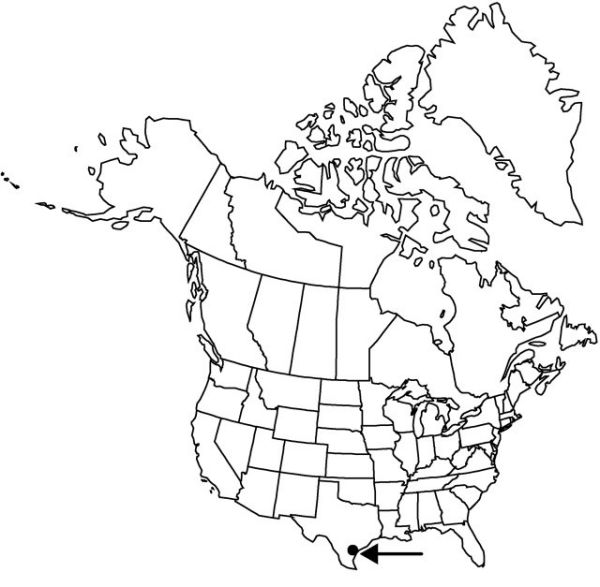Difference between revisions of "Zephyranthes jonesii"
Pl. Life 7: 42. 1951.
FNA>Volume Importer |
FNA>Volume Importer |
||
| Line 26: | Line 26: | ||
|elevation=0–30 m | |elevation=0–30 m | ||
|distribution=Tex. | |distribution=Tex. | ||
| − | |discussion=<p>Morphology, cytology, and distribution suggest that Zephyranthes jonesii, like Z. smallii, arose from hybridization between Z. pulchella (2n = 48) and Z. chlorosolen (2n = 48).</p> | + | |discussion=<p>Morphology, cytology, and distribution suggest that <i>Zephyranthes jonesii</i>, like <i>Z. smallii</i>, arose from hybridization between <i>Z. pulchella</i> (2n = 48) and <i>Z. chlorosolen</i> (2n = 48).</p> |
|tables= | |tables= | ||
|references= | |references= | ||
| Line 50: | Line 50: | ||
|publication year=1951 | |publication year=1951 | ||
|special status= | |special status= | ||
| − | |source xml=https://jpend@bitbucket.org/aafc-mbb/fna-data-curation.git/src/ | + | |source xml=https://jpend@bitbucket.org/aafc-mbb/fna-data-curation.git/src/8f726806613d60c220dc4493de13607dd3150896/coarse_grained_fna_xml/V26/V26_585.xml |
|genus=Zephyranthes | |genus=Zephyranthes | ||
|species=Zephyranthes jonesii | |species=Zephyranthes jonesii | ||
Revision as of 16:45, 18 September 2019
Leaf blade dull green, to 4.5 mm wide. Spathe 2.1–4 cm. Flowers erect; perianth pale lemon yellow, salverform to funnelform, 2–12.5 cm; perianth tube yellow with some green, 1.5–7.2 cm, diam. primarily uniform, ca. 2/3–3/4 perianth length, ca. 8–10 times filament length, longer than spathe; tepals often reflexed; stamens fasciculate, appearing equal; filaments subulate, 0.15–0.7 cm, apex acute; anthers 4–7 mm; style longer than perianth tube; stigma capitate, among to exserted beyond anthers; pedicel 0–0.6 cm, shorter than spathe. 2n = 48, 72.
Phenology: Flowering mid summer–early fall (Jul–Oct).
Habitat: Primarily low, sandy loam, open fields, swales, ditches, coastal bends
Elevation: 0–30 m
Discussion
Morphology, cytology, and distribution suggest that Zephyranthes jonesii, like Z. smallii, arose from hybridization between Z. pulchella (2n = 48) and Z. chlorosolen (2n = 48).
Selected References
None.
